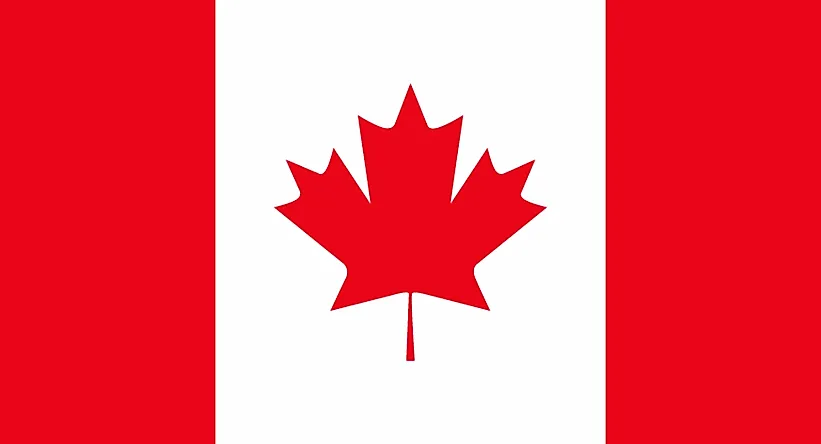
캐나다
| 대륙 | 아메리카 |
| 자본 | 오타와 |
| 인구 | 35,362,905 |
| GDP | $1.67조 |
| 1인당 GDP | $46,200 |
| 다이얼링 코드 | +1 |
| ISO 코드(2글자) | CA |
| ISO 코드(3글자) | CAN |
캐나다 정보
총 면적 기준으로 세계에서 두 번째로 큰 나라, 998만 평방킬로미터에 걸쳐 다양한 풍경과 문화가 펼쳐진 캐나다에 오신 것을 환영합니다. 약 3,800만 명의 인구가 거주하는 캐나다는 광활한 대자연과 현대적인 다문화 도시가 어우러져 높은 삶의 질, 자연의 아름다움, 다양성과 포용을 위한 노력으로 유명한 국가입니다.
지리적 특징과 자연의 아름다움
캐나다의 지형은 매우 다양하여 6개의 시간대와 여러 기후 지역을 아우릅니다. 세계에서 가장 긴 해안선을 자랑하며 태평양, 대서양, 북극 등 세 개의 대양과 접해 있습니다. 캐나다 로키 산맥은 서부 지방을 따라 뻗어 있으며, 세계에서 가장 오래된 지질 구조 중 하나인 캐나다 실드는 동부와 중부 지역을 지배하고 있습니다.
캐나다에는 미국과 공유하는 오대호를 포함해 2백만 개가 넘는 호수가 있습니다. 북극광(오로라 보레알리스)이 북쪽 하늘을 수시로 비추고 펀디만에서는 세계에서 가장 높은 조수를 경험할 수 있습니다. 캐나다 전역에 걸쳐 펼쳐진 광활한 대림은 전 세계에 남아 있는 온전한 숲의 4분의 1을 차지합니다.
문화 유산과 전통
캐나다 문화는 원주민, 프랑스, 영국, 다문화의 영향이 독특하게 혼합되어 있습니다. 원주민, 이누이트, 메티스를 비롯한 캐나다의 원주민은 캐나다의 정체성을 형성한 풍부한 문화적 전통을 유지하고 있습니다. 1971년에 채택된 공식적인 다문화주의 정책은 캐나다를 전 세계 문화의 모자이크가 된 나라로 만들었습니다.
캐나다 요리는 지역마다 다르지만 푸틴, 메이플 시럽 제품, 버터 타르트와 같은 상징적인 요리가 있습니다. 캐나다의 스포츠 문화, 특히 하키는 국가 정체성에 중요한 역할을 합니다. 원주민 예술품부터 퀘벡 민속 음악에 이르기까지 전통 예술과 공예는 현대의 문화적 표현과 함께 계속 번창하고 있습니다.
역사 여행
캐나다의 역사는 고대 원주민 문명부터 유럽 식민지, 현대 국가에 이르기까지 다양합니다. 프랑스와 영국의 식민지 시기는 캐나다의 언어, 법률 시스템, 문화에 지속적인 영향을 미쳤습니다. 1867년 영국 북아메리카법은 캐나다를 자치령으로 설립했으며, 1982년 헌법법은 헌법을 완전히 고착화했습니다.
캐나다는 두 차례의 세계대전에서 중요한 역할을 수행했으며 평화 유지, 다자주의, 국제 협력에 대한 강력한 의지를 바탕으로 중견 국가로 부상했습니다. 캐나다의 발전은 평화로운 발전으로 특징지어지지만, 원주민에 대한 역사적 불의는 여전히 화해 노력의 중요한 초점으로 남아 있습니다.
현대 경제 환경
오늘날 캐나다는 천연자원, 첨단 제조, 서비스, 기술을 기반으로 세계 최대의 경제 대국 중 하나입니다. 캐나다는 에너지, 광물, 농산물, 공산품의 주요 수출국입니다. 특히 토론토, 밴쿠버, 몬트리올과 같은 도시에서 기술 부문이 크게 성장했습니다.
캐나다는 자유 시장 원칙을 수용하면서 강력한 사회 안전망을 유지하고 있습니다. 캐나다 은행은 안정성으로 유명하며, 캐나다의 교육 시스템은 지속적으로 세계 최고 수준입니다.
국제 관계 및 글로벌 포지셔닝
캐나다는 G7, G20, NATO, UN을 비롯한 수많은 국제기구에 적극적으로 참여하고 있습니다. 캐나다는 다자주의, 환경 보호, 인권에 대한 헌신으로 잘 알려져 있습니다. 최대 무역 파트너인 미국 및 영연방 국가들과의 특별한 관계가 캐나다의 외교 정책의 많은 부분을 형성하고 있습니다.
알고 계셨나요?
- 캐나다는 243,042킬로미터가 넘는 세계에서 가장 긴 해안선을 가지고 있나요?
- 전 세계 자연 호수의 절반 이상이 이 나라에 있다고요?
- 캐나다 발명품에는 인슐린, 전화기, 농구공이 있나요?
- 매니토바주 처칠이 "세계의 북극곰 수도"로 알려져 있나요?
결론
캐나다는 다양성, 풍부한 천연자원, 민주적 가치가 어떻게 번영하고 포용적인 사회를 만들 수 있는지에 대한 모범이 되고 있습니다. 북극 영토에서 활기찬 도시, 원주민 유산에서 현대적인 혁신에 이르기까지 캐나다는 평화, 질서, 좋은 정부에 대한 헌신을 유지하면서 계속 발전하고 있습니다. 기후 변화와 원주민과의 화해 등의 도전에 직면한 캐나다는 모든 국민을 위한 지속가능하고 공평한 미래를 만들기 위해 최선을 다하고 있습니다.





